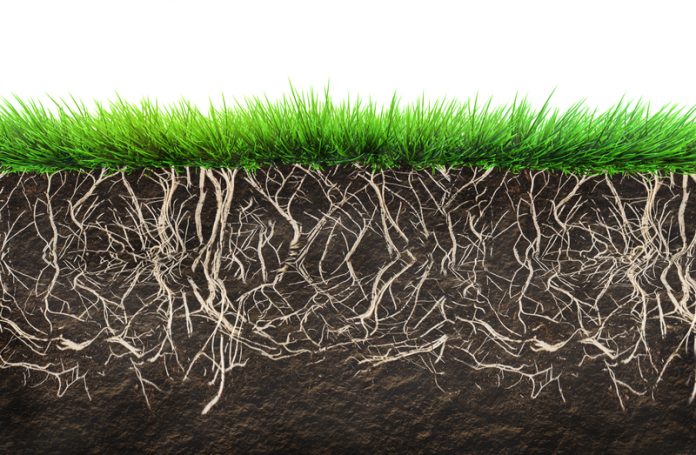Dr. Robert Simmons, Prof. Jane Rickson and Prof. Ron Corstanje from Cranfield University’s School of Water, Energy and Environment sheds light on sustainable soil management (SSM) challenges, including soil degradation
Sustainable soil management (SSM) is fundamental to effective soil function, particularly in intensive production systems where optimal plant growth is required to deliver maximal crop yield and quality. However, across the UK and Europe, soil degradation threats such as soil compaction, erosion, loss of soil carbon and loss of soil biodiversity impact directly on key soil functions including water regulation, carbon sequestration and nutrient cycling.
Soil degradation can impact directly on yield and yield quality, as well as the timing of tillage, planting and harvesting operations. This leads to gaps in continuity which can have a significant financial impact on growers and increase their reliance on imports to meet customer requirements. This, in turn, impacts on national food security, self-sufficiency and has social impacts due to uneven labour requirements and increased food prices.
Even with moves toward reduced tillage approaches and the integration of cover crops within rotations, there is a continuing trend in the degradation of soil structure arising from highly intensive agricultural systems involving excessive and inappropriately timed trafficking, increased machinery mass, a decline in soil carbon and loss of soil biological functionality. This is compounded by increased frequency of extreme weather events. For example, soil structural degradation in the form of compaction is widespread and pervasive. It is estimated that soil compaction effects >30 M ha of agricultural land in Europe1. The systematic degradation of soil structure can severely restrict root development and compromise the ability of crop plants to access water and nutrients, increase susceptibility to disease and pest damage with direct impacts on yield, yield quality and production costs. Addressing SSM is fundamental to European food and economic security.
CHaPs facilities and their role in addressing SSM challenges
As well as containing beneficial microbiology, the soil is the reservoir for most weed seeds, insects, nematodes and pathogens leading to crop disease. The sustainable management of soil properties is therefore fundamental to the mitigation of biotic crop threats. The recent and continued withdrawal of critical chemical control measures has also rekindled interest in the role of soil management in the protection of crop health.
However, little is known of how practices such as tillage/cultivations or the use of organic amendments and crop residues affect the persistence and transmission of crop biotic threats. This lack of knowledge is hindering our ability to generate sound evidence of how soil management determines both crop health and productivity. Guidance needs to be developed on how to manipulate soil properties that will enhance the ability of soil to suppress crop diseases and pests through sustainable soil management.
The Crop Health and Protection Centre (CHAP) Soil Health unique experimental facilities at Cranfield University provide integrated, pilot scale demonstration of the dynamic interactions between soil condition, crops, tillage, water and biotic stresses. The facility recreates the dynamic interrelationships between soil health, water use and biotic stress (pathogens, weeds and pests) and the environmental variables that influence them at pilot scale (<1m2 – 20m2).
Controllable factors include manipulation of the whole crop production cycle (tillage, drilling, plant establishment, crop development, harvest and post-harvest), including the rotational context (multiple cropping seasons). The soil/crop/water research facilities include a 30m long 5m wide soil lane with self-propelled soil processor, rainfall simulators capable of replicating annual, as well as extreme rainfall events, a range of soil runoff/leachate slopes, crop growth cabinets and a 9m high 300m2 state-of-the-art glasshouse.
Research outputs will enhance the crop-protection qualities of soil, which are fundamental for resilient and sustainable crop health. Key industry challenges that can be addressed with the facilities include blackgrass control, effective use of cover and companion crops, optimising precision tillage for seedbed preparation, efficacy of cover crops to bio-remediate soil structure, identification of quality traits/crop resilience markers, screening of germplasm challenged with specific soil conditions and improved modelling of pesticide fate and resistance within soils.
Agri-EPI and its role in addressing SSM challenges
Given global pressures on land and resources (soil, energy, water, nutrients) and growing demand for more and better-quality food, agricultural production will have to become both more intense, but also more efficient. This is particularly the case in UK, wherein a changing policy environment there is extreme competition over good agricultural land. Farming will have to harness the latest technologies to become more precise and more efficient with its resources. This is reiterated in the UK governments recently released 25-year Environment Plan. Agri-EPI (Precision Agriculture Innovation and Engineering) is a centre of engineering excellence in which innovative tools are developed for the measurement and control of variability.
Agri-EPI also provides underpinning analytical and data-fusion tools (including working with the Agrimetrics Agri-Tech Centre and others) to analyse sophisticated sensor and image-derived data streams to create greater understanding of the extent, costs and potential causes of variation in agricultural output and manage farm resources accordingly. Current developments in innovative technology include the early detection of crop disease, the precision application of field inputs (fertiliser, water, plant protection products) and more precise mapping of within-field soil variation.
The need for high-throughput phenotyping in plant breeding can also be addressed through the development and testing of novel sensors and image analysis protocols. Integration of these capabilities with the CHAP Soil Health facilities will allow Agri-EPI to provide advanced engineering technologies aimed at increasing efficiency and sustainability and contributing to integrated solutions for sustainable soil management, developing, for instance, cost-effective sensors to determine indicators of soil health, the next generation on-farm vehicles, informatics systems which fuse information from a variety of platforms (satellite, drones, on-farm vehicles) which will inform soil management and the phenotyping of novel crop varieties under defined soil conditions.
Cranfield University
Cranfield University hosts Agri-EPI and the CHAPs soil management assets and has one of the largest concentrations of soil and plant science expertise in Europe, housed within Cranfield Soil and Agrifood Institute, Centre for Environmental and Agricultural Informatics and Water Science Institute.
Our soils expertise covers the sub-disciplines of soil physics, chemistry and biology; soil mapping and informatics; soil conservation and erosion; modelling soil processes; and soil water management and irrigation science.
We also address areas of plant and crop science and plant-microbe interactions that are critical to crop production and quality. Our research areas include agroforestry, mycology, crop water use, soil-root interactions, grain development and storage, phyllosphere and rhizosphere microbiomes and postharvest biology and technology for fresh produce. Much of this work is underpinned by our experienced bioinformatics team.
We have a flexible approach to meet the needs of our clients and will develop research proposals in close consultation with partners from both industry and government. We also have an extensive portfolio of fundamental research funded by the research councils, underpinning and informing our applied work.
1 Akker and Canarache, 2001
Please note: this is a commercial profile
Dr. Robert Simmons
School of Water, Energy and Environment
Cranfield University
Tel: +44 (0)1234 750 111 ext 2761












Dr.Robert What are the procedures for carrying out soil management
Thank you for your comment. You can contact the author here: r.w.simmons@cranfield.ac.uk